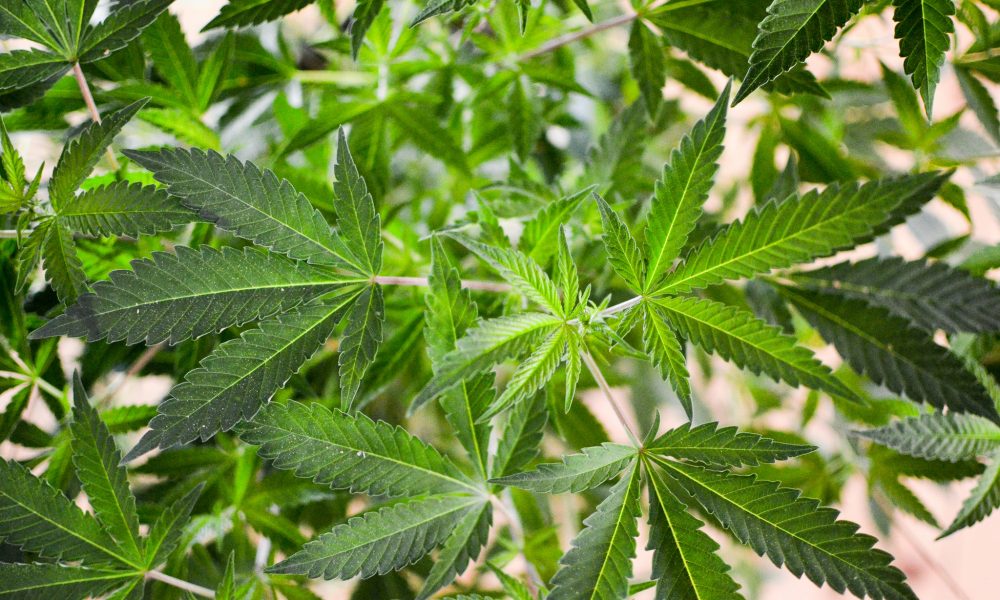A top Wisconsin Republican lawmaker says the governor risks jeopardizing a chance to pass bipartisan legislation allowing medical cannabis if he follows though with a pledge to put broader legalization of marijuana for recreational use in his upcoming budget proposal.
While Gov. Tony Evers (D) has said that enacting a more limited medical marijuana program could represent an area of bipartisan compromise in the next session, he’s also intent on advancing broader reform. Assembly Speaker Robin Vos (R) says that could be a problem.
“If he really wants to generate consensus, he needs to get off his liberal bandwagon and start by saying where can we generate consensus, and that’s not by pitching the farthest extreme position,” Vos told WisPolitics.com last week.
The speaker, who has previously expressed openness to medical cannabis legalization, particularly for patients who are seeking an opioid alternative, said that if Evers follows through on putting adult-use legalization in the biennial budget request for 2023-2025, that could scare off “people like me and a whole lot of others out of saying this is not just a gateway to recreational marijuana.”
The governor, who’s recently expressed optimism about the prospects working with the GOP-controlled legislature to legalize medical cannabis, said in a separate new interview published on Monday that “we have to do something, in my opinion.” However, he recognized that reform may have to be rolled out in increments.
—
Marijuana Moment is tracking more than 1,500 cannabis, psychedelics and drug policy bills in state legislatures and Congress this year. Patreon supporters pledging at least $25/month get access to our interactive maps, charts and hearing calendar so they don’t miss any developments.![]()
Learn more about our marijuana bill tracker and become a supporter on Patreon to get access.
—
“There seems to be an interest in—and there has been in the past, some Republicans I know voiced around the issue of medical marijuana,” the governor told Spectrum News 1.
“We will likely, in our budget, talk about the legalization of recreational and also medicinal marijuana, so we hopefully will get someplace, but I just sense in the tea leaves that there is an interest in a two-step process here, as other states have done medicinal first recreational second, but we will see,” he said. “We will be pushing for all. There is no question about that.”
In its budget request that was unveiled earlier this month, the state Department of Revenue (DOR) called on the governor to put legalization in his executive proposal. The State Public Defender (SDP) is separately seeking decriminalization of cannabis possession.
The governor included recreational and medical marijuana legalization in his 2021 budget and decriminalization and medical cannabis in his 2019 proposal, but the conservative legislature has blocked the reforms.
Some state lawmakers have also filed bills to legalize cannabis for adult use—and Assembly Majority Leader Jim Steineke (R) has said legalization is “likely” to happen at some point—but the legislature has so far failed to pass even more modest proposals like decriminalization or the legalization of medical cannabis.
Ahead of the November election, Evers met with college students and urged supporters to get engaged and vote, in part to ensure that the state advances marijuana legalization.
If Democrats had won enough seats, it could have also set them up to pass a resolution that the governor recently introduced to allow citizens to put initiatives on the ballot. Advocates expressed hope that the move could open the door to finally letting voters decide on marijuana legalization, but it’s unlikely that GOP lawmakers will go along with it.
But voters across the state have been making their voices heard on cannabis reform over the past several election cycles. Most recently, voters in three counties and five municipalities across the state approved non-binding advisory questions on their local ballots in support of legalization.
The local votes are largely meant to serve a messaging purpose, providing lawmakers with a clear policy temperature-check among their constituents. But those that were approved will not change any laws by themselves.
A statewide poll released in August found that a solid 69 percent of registered voters in Wisconsin believe that cannabis should be legal. That includes 81 percent of Democrats, 75 percent of independents and 51 percent of Republicans.
Republicans filed a limited medical cannabis bill this year—and it got a hearing on the unofficial marijuana holiday 4/20, but that came too late in the legislative session for lawmakers to actually vote on the measure.
Other GOP members have filed bills to more modestly decriminalize marijuana possession in the state, but none of those proposals advanced.
As it stands, marijuana possession is punishable by a maximum $1,000 fine and up to six months in jail for a first offense. People convicted of a subsequent offense would face a felony charge punishable by a maximum $10,000 fine and up to three and a half years in prison.
The governor in February vetoed a GOP-led bill that would have significantly ramped up criminal penalties for people who use butane or similar fuels to extract marijuana.
Evers held a virtual town hall event last year where he discussed his cannabis proposal, emphasizing that polling demonstrates that Wisconsin residents back the policy change.
And in the interim as lawmakers pursue reform, the governor has issued hundreds of pardons during his years in office, primarily to people convicted of non-violent marijuana or other drug offenses.
Psychedelics Like Psilocybin Are Now Legal In Colorado With Governor’s Proclamation On Voter-Approved Ballot Measure
Photo courtesy of Philip Steffan.
Read the full article here

